
The ICOS Science Conference Programme Committee consists of experts from the community and contributes to the organisation of the conference programme.
Programme Committee consists of the science conference organising team from the ICOS Head Office (Werner Kutsch, Sindu Raj Parampil, Janne-Markus Rintala, Maiju Tiiri and Karlina Ozolina) and Utrecht University (Thomas Röckmann), as well as esteemed colleagues from the scientific community:
Jaana Bäck
Jaana Bäck made her PhD on tree ecophysiology at the University of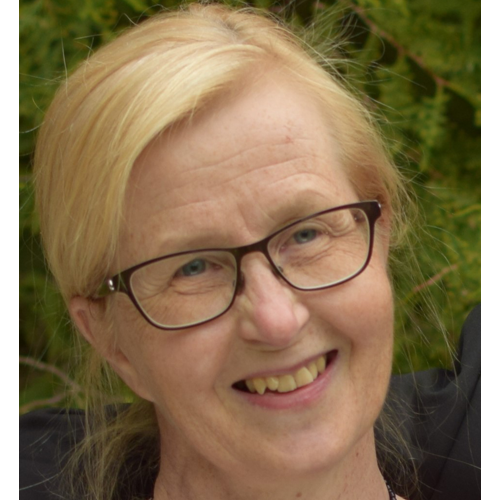 Oulu. Currently she is leading a research group at the University of Helsinki, focusing on biogeochemical cycles, terrestrial ecology and soil processes in boreal and arctic ecosystems, especially the feedbacks between ecosystems and atmosphere. One key topic is the impacts of forest ecosystems on climate change and especially the interactions between carbon uptake and production of volatile compounds. She is contributing in developing national, European and global research infrastructures for integrated, long-term observations of Earth Systems. She is the coordinator of an H2020 Advanced community project ‘eLTER PLUS’ and a co-coordinator for the ESFRI process of the European Long-Term Ecosystem, Critical Zone and Socio-ecology RI.
Oulu. Currently she is leading a research group at the University of Helsinki, focusing on biogeochemical cycles, terrestrial ecology and soil processes in boreal and arctic ecosystems, especially the feedbacks between ecosystems and atmosphere. One key topic is the impacts of forest ecosystems on climate change and especially the interactions between carbon uptake and production of volatile compounds. She is contributing in developing national, European and global research infrastructures for integrated, long-term observations of Earth Systems. She is the coordinator of an H2020 Advanced community project ‘eLTER PLUS’ and a co-coordinator for the ESFRI process of the European Long-Term Ecosystem, Critical Zone and Socio-ecology RI.
Susan Hartman
Sue Hartman received her PhD from the University Las Palmas de Gran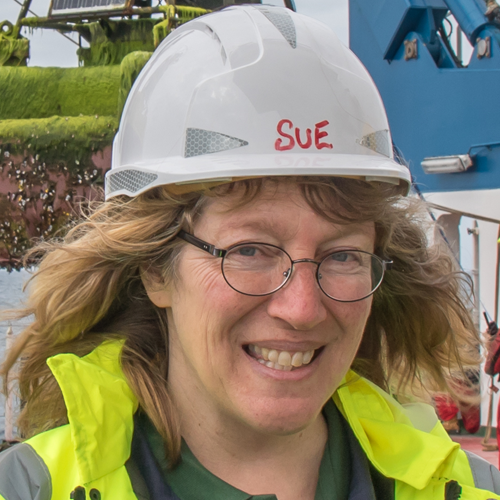 Canaria, focusing on Northeast Atlantic biogeochemistry. She has worked at the National Oceanography Centre in the UK for 3 decades, initially in ocean physics and is currently working in the Ocean Biogeochemistry group. Her main research interests are in understanding variations in Essential Ocean Variables, in particular those related to carbonate chemistry and CO2 flux. She is a PI for Biogeochemical measurements on ships of opportunity and fixed ocean stations. Her current work focuses on the Porcupine Abyssal Plain Observatory (PAP-SO) in the northeast Atlantic, which links carbon measurements from the surface to the seafloor. She is the current Ocean monitoring Station Assembly chair within ICOS.
Canaria, focusing on Northeast Atlantic biogeochemistry. She has worked at the National Oceanography Centre in the UK for 3 decades, initially in ocean physics and is currently working in the Ocean Biogeochemistry group. Her main research interests are in understanding variations in Essential Ocean Variables, in particular those related to carbonate chemistry and CO2 flux. She is a PI for Biogeochemical measurements on ships of opportunity and fixed ocean stations. Her current work focuses on the Porcupine Abyssal Plain Observatory (PAP-SO) in the northeast Atlantic, which links carbon measurements from the surface to the seafloor. She is the current Ocean monitoring Station Assembly chair within ICOS.
Ralph Keeling
Ralph’s work centers on long-term measurements of the major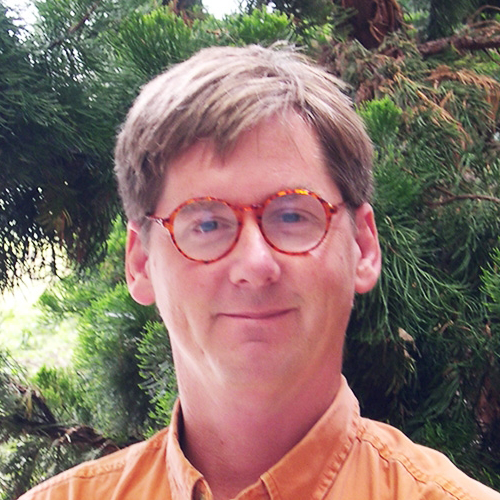 constituents in air. He has been on the faculty at the Scripps Institution of Oceanography, UC San Diego, since 1993. He was the first to demonstrate that the O2 content of air is decreasing due to the burning of fossil-fuels and has directed a program to track this decrease since 1989. Since 2005 he has also directed the Scripps CO2 program which sustains the iconic record of carbon dioxide at Mauna Loa and other sites, begun by his father, Charles D. Keeling. He is engaged in ongoing research to refine estimates of sources and sinks of carbon dioxide using atmospheric measurements. Keeling has received the Rosenstiel Award in marine and atmospheric chemistry, the Humboldt Research Award, and is a Union Fellow of the American Geophysical Union.
constituents in air. He has been on the faculty at the Scripps Institution of Oceanography, UC San Diego, since 1993. He was the first to demonstrate that the O2 content of air is decreasing due to the burning of fossil-fuels and has directed a program to track this decrease since 1989. Since 2005 he has also directed the Scripps CO2 program which sustains the iconic record of carbon dioxide at Mauna Loa and other sites, begun by his father, Charles D. Keeling. He is engaged in ongoing research to refine estimates of sources and sinks of carbon dioxide using atmospheric measurements. Keeling has received the Rosenstiel Award in marine and atmospheric chemistry, the Humboldt Research Award, and is a Union Fellow of the American Geophysical Union.
Mahesh Kumar Sha
Mahesh Kumar Sha is currently working as a scientist at the Royal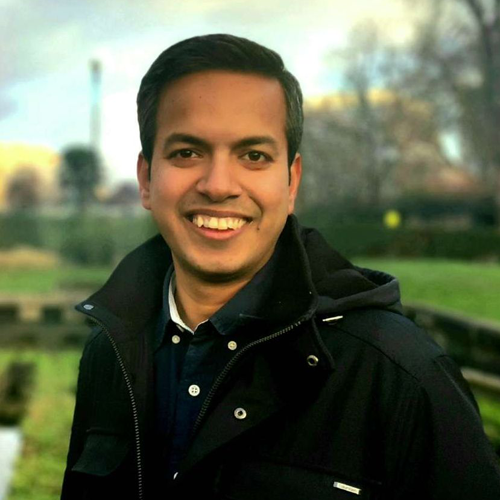 Belgian Institute for Space Aeronomy (BIRA-IASB) in Belgium. He gained his Ph.D. in Physics from the Karlsruhe Institute of Technology (KIT) in 2013, working with Prof. Herbert Fischer and Prof. Johannes Orphal. His thesis work focused on the characterisation and optimisation of the new Imaging Fourier Transform Spectrometer GLORIA (Gimballed Limb Observer for Radiance Imaging of the Atmosphere). Dr. Sha is interested in the Earth’s carbon cycle, sources and sinks of greenhouse gases and other climate relevant gases. His research focuses on the characterisation and operation of high- and low- spectral resolution FTIR instruments, making precise and accurate measurements of atmospheric trace gases using in-situ and remote sensing techniques, data retrieval, geophysical data exploitation, and satellite validation. He is a member of several ground-based FTIR networks, namely, TCCON, COCCON, and NDACC.
Belgian Institute for Space Aeronomy (BIRA-IASB) in Belgium. He gained his Ph.D. in Physics from the Karlsruhe Institute of Technology (KIT) in 2013, working with Prof. Herbert Fischer and Prof. Johannes Orphal. His thesis work focused on the characterisation and optimisation of the new Imaging Fourier Transform Spectrometer GLORIA (Gimballed Limb Observer for Radiance Imaging of the Atmosphere). Dr. Sha is interested in the Earth’s carbon cycle, sources and sinks of greenhouse gases and other climate relevant gases. His research focuses on the characterisation and operation of high- and low- spectral resolution FTIR instruments, making precise and accurate measurements of atmospheric trace gases using in-situ and remote sensing techniques, data retrieval, geophysical data exploitation, and satellite validation. He is a member of several ground-based FTIR networks, namely, TCCON, COCCON, and NDACC.
Peter Landschutzer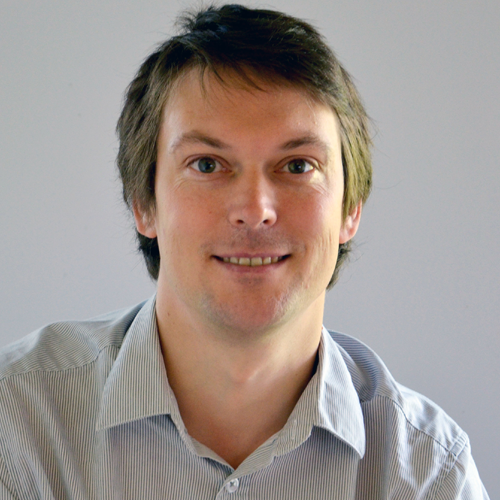
Peter Landschützer received his PhD at the School of Environmental Sciences at the University of East Anglia, where he developed a novel 2-step neural network interpolation technique to estimate the air-sea CO2 exchange from surface ocean pCO2 observations, which he refined during his post-doc at the Swiss Federal Institute of Technology in Switzerland. Currently, he is research group leader of the ’Observations, Analysis and Synthesis’ group at the Max Planck Institute for Meteorology in Hamburg, Germany. His research focuses on the collection of in-situ CO2 measurements and the combination measurements with machine learning techniques to quantify the ocean carbon sink, its uncertainty and its evolution in time.
Thomas Lauvaux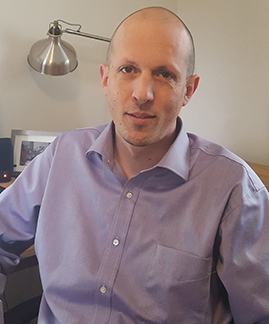
Thomas Lauvaux currently works at the LSCE in Atmospheric and Carbon Cycle Sciences. He is a PennState University Affiliate. His main research interest is to understand the roles of the biosphere and of various human activities on the carbon cycle using data assimilation techniques. By combining atmospheric greenhouse gas measurements and numerical weather models, he collects information on the exchanges of carbon from land and coastal surfaces to the atmosphere. He is particularly interested in satellite measurements and dense network of ground-based sensors to characterize carbon sources from large metropolitan areas, the impact of oil and gas production activities, and to understand carbon sinks from natural and agricultural landscapes.
Denis Loustau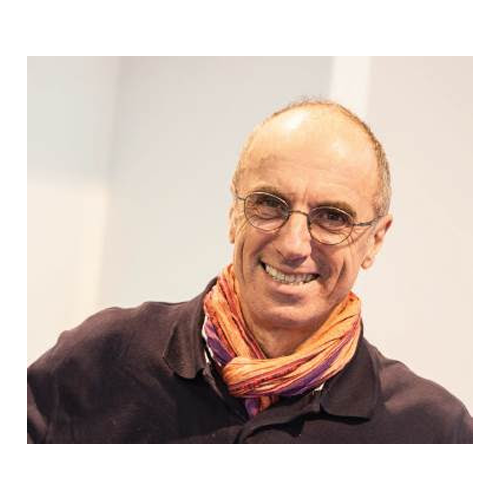
Denis Loustau (forest ecophysiology, bioclimatology, forest modelling, carbon cycle, climate change) is senior scientist in INRAE, research unit ISPA (Soil, Plant Atmosphere Interaction) at Bordeaux. He obtained his Ph.D. in 1984 about Plant Ecology and Soil Science at University Henri Poincaré, Nancy, France, and has a Master degree in Ecology from Paris Sorbonne University. He spent sabbatical years as invited scientist in Laval University, Quebec, 1986 and Edinburgh University, UK. He has been coordinator of the Ecosystem national branch of the ICOS European infrastructure since 2009 and coleader of the ICOS Ecosystem Thematic Center until 2017. Along his career, Denis L. has investigated the water balance and water relations in Pine trees and forest, photosynthesis and carbon metabolism of trees, and he has been developing forest models representing the main biophysical and biogeochemical processes in managed forest ecosystems.
Frank McGovern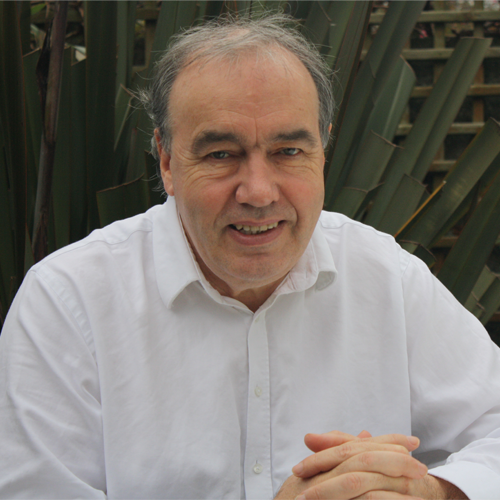
Frank McGovern is the Chief Climate Scientist with the Environmental Protection Agency (EPA) Ireland. He is Chair of the Joint Programming Initiative (JPI) on Climate which advances the aligned development of climate change research in the European Research Area. His work is focused on; informing actions on climate change, communication of climate science, and the development of climate change research. His PhD is in atmospheric physics and he is a member of a number of European expert bodies. He is a regular delegate to meetings of the UN Framework Convention on Climate Change (UNFCCC) and leads for Ireland at meetings of the Intergovernmental Panel on Climate Change (IPCC).
Wouter Peters
Wouter Peters is professor in Carbon Cycle And Atmospheric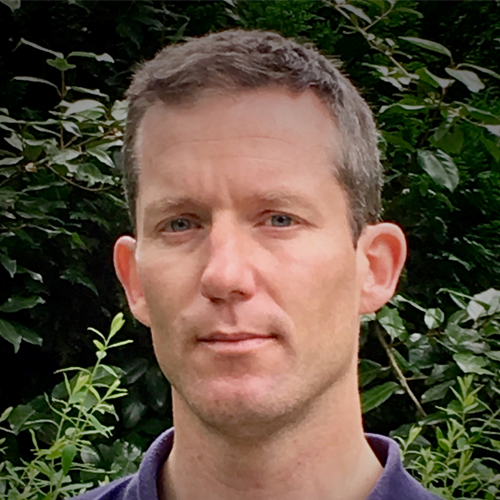 Composition at Wageningen University as well as Groningen University in The Netherlands. His research combines measurements of greenhouse gases and their isotopic composition with atmospheric data assimilation on regional and global scales. Following his doctoral research on the ozone layer in the tropical troposphere, he worked at NOAA’s Earth System Research Lab in the US where he built the CarbonTracker system for CO₂.
Composition at Wageningen University as well as Groningen University in The Netherlands. His research combines measurements of greenhouse gases and their isotopic composition with atmospheric data assimilation on regional and global scales. Following his doctoral research on the ozone layer in the tropical troposphere, he worked at NOAA’s Earth System Research Lab in the US where he built the CarbonTracker system for CO₂.
After returning to work at Wageningen University in 2007, he was awarded a national talent-program Vidi grant and an ERC research grant to work on airborne stable isotope carbon measurements from the Amazon. Peters is PI of the Dutch contribution to the ICOS Carbon Portal, co-PI of the Ruisdael national infrastructure for atmospheric research, and core team member of the Global Carbon Project.
Dhanyalekshmi Pillai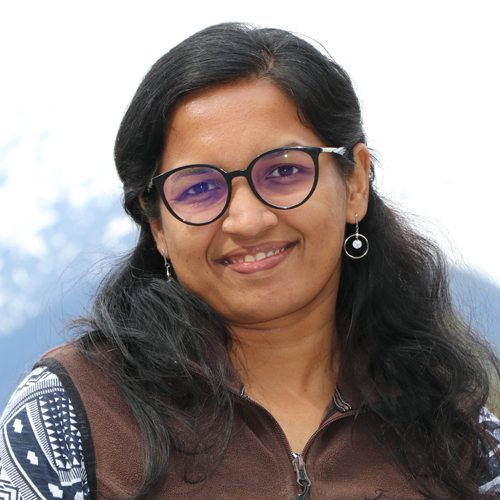
Dhanyalekshmi K. Pillai studied Physics and received PhD from the Max Planck Institute for Biogeochemistry (MPI), Germany. She became interested in Atmospheric Dynamics and Radiation Physics and worked as a postdoc at the University of Bremen and the Max Planck Institute in Germany. Later Dhanya moved to the U.S to work as a Research Scientist II at the National Oceanic and Atmospheric Administration (NOAA). Currently, she is working as an Assistant Professor and leading the Greenhouse gas Modelling and Applications (GMA) research group at the Indian Institute of Science Education Research (IISER) Bhopal. Also, she is the head of the Max Planck partner group in IISER Bhopal, India. Her expertise lies in applying and developing the atmospheric GHG modelling framework and utilizing the satellite remote sensing of atmospheric trace gases for climate studies.
Jocelyn Turnbull
Jocelyn Turnbull holds joint appointments as a Senior Scientist at 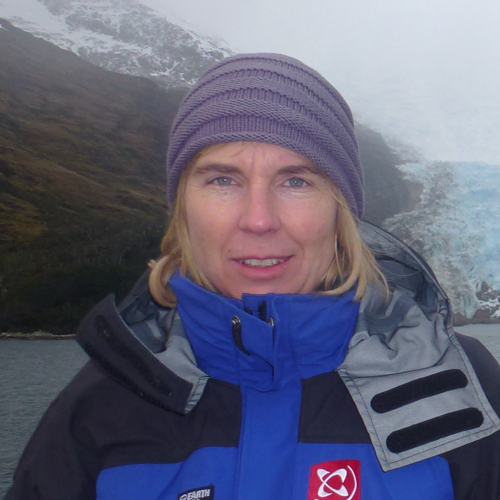 GNS Science, New Zealand and a Research Associate at the University of Colorado at Boulder, USA. She leads the Rafter Radiocarbon Laboratory at GNS Science, the world’s oldest continuously operating radiocarbon facility. The laboratory maintains expertise in a wide range of radiocarbon applications, and Jocelyn’s research is primarily on the modern carbon cycle, particularly fossil fuel derived CO2. She uses radiocarbon and related tracers to understand the sources and sinks of greenhouse gases at the local, urban and regional scales. Current projects include CarbonWatch-NZ which aims to evaluate New Zealand’s natural and anthropogenic carbon budget; INFLUX, the Indianapolis Flux Project where methods for evaluating urban greenhouse gas emissions are being developed; and SOAR Southern Ocean Atmospheric Radiocarbon which uses radiocarbon measurements to understand the dynamics of Southern Ocean carbon exchange.
GNS Science, New Zealand and a Research Associate at the University of Colorado at Boulder, USA. She leads the Rafter Radiocarbon Laboratory at GNS Science, the world’s oldest continuously operating radiocarbon facility. The laboratory maintains expertise in a wide range of radiocarbon applications, and Jocelyn’s research is primarily on the modern carbon cycle, particularly fossil fuel derived CO2. She uses radiocarbon and related tracers to understand the sources and sinks of greenhouse gases at the local, urban and regional scales. Current projects include CarbonWatch-NZ which aims to evaluate New Zealand’s natural and anthropogenic carbon budget; INFLUX, the Indianapolis Flux Project where methods for evaluating urban greenhouse gas emissions are being developed; and SOAR Southern Ocean Atmospheric Radiocarbon which uses radiocarbon measurements to understand the dynamics of Southern Ocean carbon exchange.
Sanam Vardag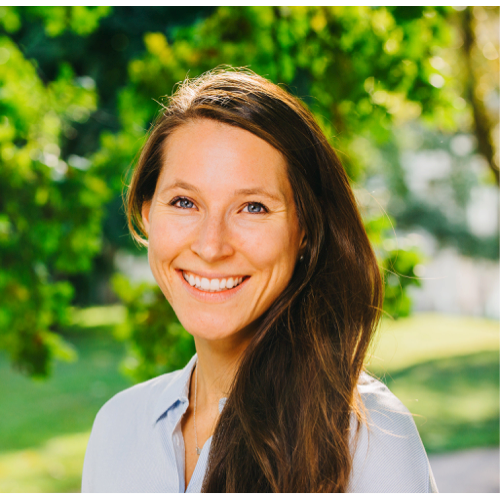
Sanam Vardag studied Physics at the Institute for Environmental Physics at Heidelberg University and at University of Tor Vergata, Rome. She did her PhD on the interpretation of regional greenhouse gas records. To this end she measured greenhouse gases and CO2 isotopes with a Fourier Transform Infrared analyser, performed simulation of regional greenhouse gas records and developed new methods of analyzing them. She was awarded the Sigrid and Dulger environmental prize for her outstanding dissertation. After her PhD she was executive manager of the Heidelberg Center for the Environment (HCE) where she developed new formats on interdisciplinary environmental exchange. The experiences from leading an interdisciplinary environmental center still shape her research today. Since September 2019 she is a senior scientist at the Institute of Environmental Physics working on greenhouse gas simulations from local to global scales. She has been awarded the teaching prize for her tutorials in 2021.
Leiming Zhang
Leiming Zhang, currently works at the Institute of Geographic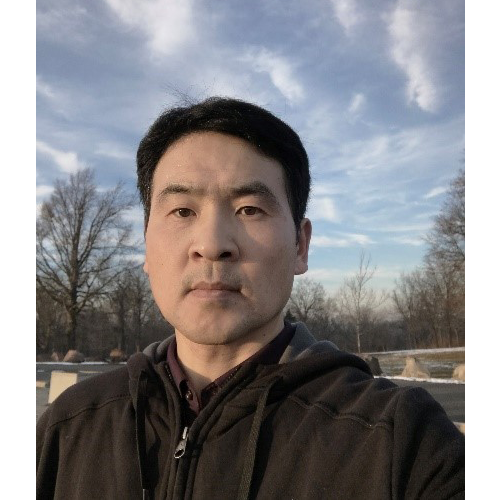 Sciences and Natural Resources Research, CAS. He serves as member of the Executive Committee of AsiaFlux, and member of the Coordination Committee of ILTER. He received his PhD at the University of Chinese Academy of Sciences in Beijing, China. From 2002, he joined Chinese Terrestrial Ecosystem Flux Research Network (ChinaFLUX). He is interest in the interaction between terrestrial carbon & water cycles and climate change. His research focus on the roles of different terrestrial ecosystems in Carbon Netural through the evaluation the variability and magnitude of ecosystem carbon sequestration capacity using filed investigation, eddy covariance technique, dynamic chamber method and near-surface remote sensing.
Sciences and Natural Resources Research, CAS. He serves as member of the Executive Committee of AsiaFlux, and member of the Coordination Committee of ILTER. He received his PhD at the University of Chinese Academy of Sciences in Beijing, China. From 2002, he joined Chinese Terrestrial Ecosystem Flux Research Network (ChinaFLUX). He is interest in the interaction between terrestrial carbon & water cycles and climate change. His research focus on the roles of different terrestrial ecosystems in Carbon Netural through the evaluation the variability and magnitude of ecosystem carbon sequestration capacity using filed investigation, eddy covariance technique, dynamic chamber method and near-surface remote sensing.